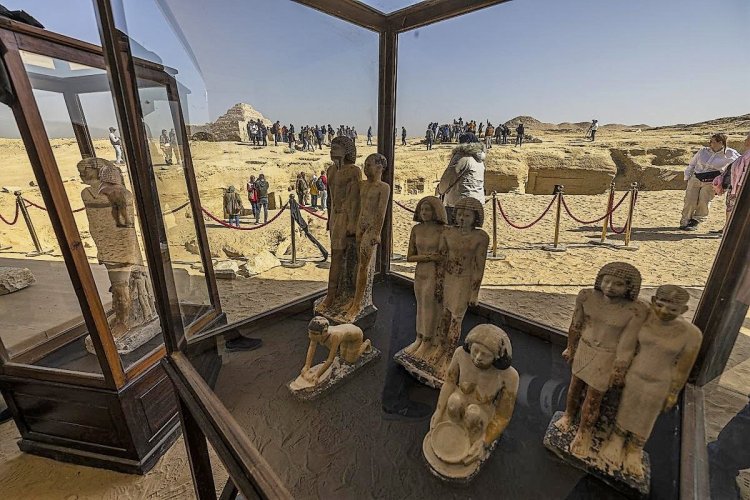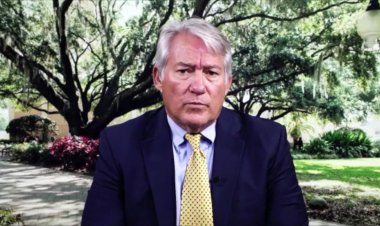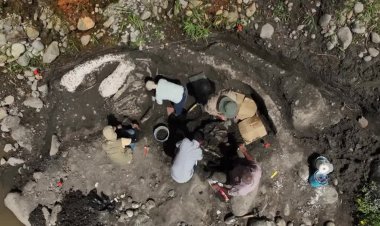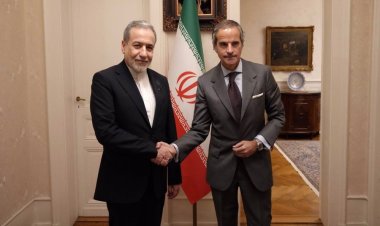Egypt unveils ancient 'secret keeper' tomb, golden mummy

Egypt unveiled a gold-laced mummy and four tombs, including of an ancient king's "secret keeper", discovered in the Saqqara necropolis south of Cairo.
The vast burial site at the ancient Egyptian capital Memphis, a UNESCO World Heritage site, is home to more than a dozen pyramids, animal graves and old Coptic Christian monasteries.
Archaeologist Zahi Hawass, Egypt's former antiquities minister, announced the latest discovery, dating from the fifth and sixth dynasties -- around the 25th to the 22nd centuries BC -- to reporters at the dig site.
The largest tomb, "decorated with scenes of daily life," belonged to a priest, inspector and supervisor of nobles named Khnumdjedef, said Hawass.
It was found in the pyramid complex of Unas, the last king of the fifth dynasty, who reigned some 4,300 years ago.
Another tomb belonged to Meri, who according to Hawass served as the pharaoh's appointed "secret keeper", a priestly title held by a senior palace official bestowing the power and authority to perform special religious rituals.
A third tomb belonged to a priest in pharaoh Pepi I's pyramid complex, and the fourth to a judge and writer named Fetek, Hawass added.
Egypt has unveiled many major archaeological discoveries in recent years.
Critics say the flurry of excavations has prioritised finds shown to grab media attention over hard academic research.















